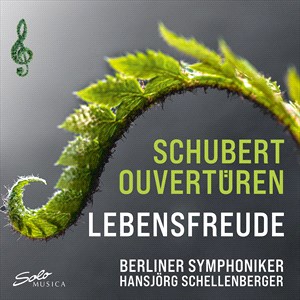
ESSENTIAL RECORDINGS

Overture in C Major, D. 591, "im italienischen Stile" (In the Italian Style) Fierrabras, D. 796: Overture Overture in D Major, D. 556 Overture in C Minor, D. 8 Die Zauberharfe, D. 644: Overture Die Verschworenen (Der hausliche Krieg), D. 787: Overture Der Teufel als Hydraulicus, D. 4: Overture Overture in D Major, D. 590, "im italienischen Stile" (In the Italian Style)
This is definitely not your typical Schubert. Three minutes into the Overture in C Major, D. 591 and you would swear you are listening to an opera overture by Rossini. It is after all subtitled "In the Italian Style". You see, just like The Beatles were the musical craze that swept the world during the 1960s, Italian opera was extremely popular throughout Europe during the 18th and 19th centuries, so in order to remain relevant and compete, some non-Italian composers tried to incorporate it in their oeuvre. Mozart for example based many of his operas on Italian libretti, and even wrote some in a somewhat "opera buffa" style.
Despite being one of the best lieder composers of all time, Franz Schubert's few operas were not successful at the time, and still aren't very popular amongst today's opera buffs. Operas are complex musical organisms bringing together narrative, drama, human emotions, etc ... so be they melodramatic, comic, heroic or fantastical, the underlying music has to, without the visual aspects like art direction, backdrops, costumes and the singers stage acting, project and convey these characteristics to the listener. Schubert was a master of the short, melancholy form, so opera was beyond his scope.
Nonetheless, just like the famous overtures by Franz von Suppé or Rossini, these overtures, especially the ones written in the Italian style, stand up well on their own. The Berliner Symphoniker under the direction of Hansjörg Schellenberger well capture their spontaneity, invention and a certain degree of levity. The audio recording is top-notch and well projects this small-scale orchestra's bright and nimble sound. Of the very few extant recordings of these works, this one moves straight to the top. After all, this album's subtitle "Lebensfreude" translates to "joie de vivre".
Jean-Yves Duperron - April 2022